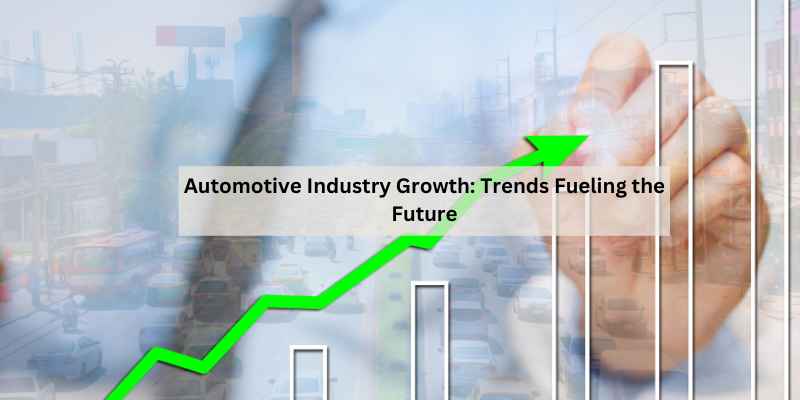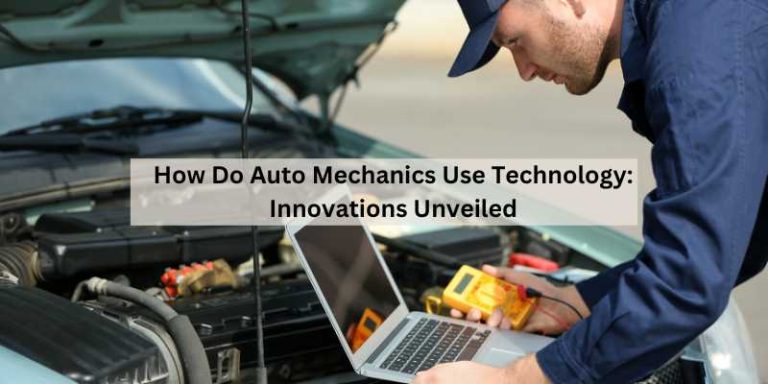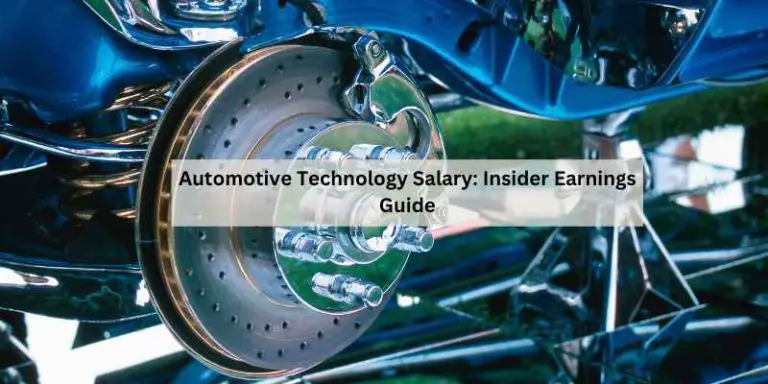Automotive Industry Growth: Trends Fueling the Future
The automotive industry is experiencing significant growth with advancements in autonomous driving and electric vehicles. This growth is driven by technological innovations and shifting consumer preferences towards sustainable transportation options.
As the industry evolves, we see a transition from traditional combustion engines to cleaner alternatives like hydrogen fuel cells and electric powertrains. These changes are not only reshaping the way we drive but also influencing urban planning and societal mobility patterns.
With continuous research and development, the future of the automotive sector looks promising, promising a future where innovation and sustainability go hand in hand to drive growth and progress.
Introduction To The Automotive Industry’s Evolution
The automotive industry is experiencing significant growth with advancements in autonomous-driving cars, hydrogen fuel-cells, and fully electric engines. As technology evolves, we see a transformative shift towards a future of mobility and innovation in the auto sector.
Shifts From Past To Present
The automotive industry has undergone significant transformations from the past to the present. In the past, vehicles were predominantly powered by internal combustion engines using fossil fuels. However, in the present day, there has been a notable shift towards alternative fuel sources such as electric and hydrogen-powered vehicles.
Key Growth Indicators
Several key growth indicators are driving the evolution of the automotive industry. These include the increasing demand for sustainable and eco-friendly transportation options, advancements in autonomous driving technology, and the rise of electric vehicles as viable alternatives to traditional combustion engine vehicles.
Electric Vehicles (evs): Charging The Future
Revolutionizing the automotive industry, Electric Vehicles (EVs) are shaping the future of transportation. With advancements in technology, EVs are driving industry growth towards sustainable and eco-friendly mobility solutions.
Electric Vehicles (EVs). As the demand for sustainable transportation grows, EVs are paving the way for a cleaner and more efficient future.
Rising Demand For Evs
Electric Vehicles (EVs) is on the rise as consumers prioritize eco-friendly transportation options. With advancements in battery technology and increased awareness of environmental issues, more people are choosing EVs for their daily commute.
Infrastructure And Technology Advancements
Electric Vehicles (EVs). The development of charging stations and smart grid technologies is essential to support the growing number of EVs on the roads. Additionally, innovations in battery technology are extending the range and efficiency of EVs.
In conclusion, the future of the automotive industry is electrifying, with Electric Vehicles (EVs) leading the way towards a more sustainable and greener transportation sector.
Autonomous Vehicles: Road To Self-driving Cars
The development of autonomous vehicles is paving the way for a future where self-driving cars will be a common sight on the roads. This technology has the potential to revolutionize the automotive industry and significantly impact society as a whole.
Current Status Of Autonomous Technology
Autonomous vehicle technology has made significant advancements in recent years. Companies such as Tesla, Waymo, and General Motors have been at the forefront of developing self-driving capabilities. These vehicles utilize sophisticated sensors and artificial intelligence algorithms to navigate and operate without human intervention.
Impact On Industry And Society
The rise of autonomous vehicles is set to transform both the automotive industry and society. In the industry, it will reshape traditional business models and drive innovation in areas such as mobility services and vehicle design. For society, autonomous vehicles have the potential to improve road safety, reduce traffic congestion, and enhance accessibility for individuals with limited mobility.
Connectivity And Cars: The Rise Of Smart Vehicles
As the automotive industry continues to evolve, one of the most significant developments is the rise of smart vehicles, which are driven by connectivity and advanced technology. This shift has been facilitated by the integration of IoT in vehicles, leading to the emergence of connected car ecosystems that offer a wide array of benefits. Let’s delve into the details of this transformation and explore the advantages of smart vehicles in the modern automotive landscape.
Integration Of Iot In Vehicles
The integration of IoT (Internet of Things) in vehicles has revolutionized the way we perceive and interact with automobiles. By incorporating IoT technology into vehicles, manufacturers have enabled a seamless connection between various components and systems within the car. This has paved the way for enhanced communication, data exchange, and real-time monitoring, ultimately contributing to the concept of smart vehicles.
Benefits Of Connected Car Ecosystems
The connected car ecosystems, empowered by IoT integration, bring forth a multitude of benefits for both drivers and manufacturers. These connected systems facilitate advanced safety features, efficient maintenance monitoring, and personalized user experiences. Additionally, they enable the collection of valuable data that can be leveraged for predictive analytics and performance optimization.
Alternative Fuel Technologies: Beyond Gasoline

The automotive industry is experiencing significant growth and transformation, with a notable shift towards alternative fuel technologies that extend beyond traditional gasoline-powered vehicles. This evolution is driven by the need for sustainable and eco-friendly transportation solutions, as well as the growing demand for more energy-efficient and cost-effective vehicles.
Hydrogen Fuel Cells
One of the most promising alternative fuel technologies in the automotive industry is the utilization of hydrogen fuel cells. These cells generate electricity through a chemical reaction between hydrogen and oxygen, producing water as the only byproduct. This clean and renewable energy source has the potential to revolutionize the transportation sector by offering zero-emission vehicles with long driving ranges and quick refueling times.
Biofuels And Synthetic Fuels
Another area of focus in the quest for sustainable fuel options is the development of biofuels and synthetic fuels. Biofuels, derived from organic materials such as plants and algae, offer a renewable and environmentally-friendly alternative to traditional gasoline. Similarly, synthetic fuels, which are produced through chemical processes using renewable energy sources, present a viable option for reducing carbon emissions and enhancing the overall sustainability of the automotive industry.
Global Market Dynamics: Emerging Economies In The Spotlight
The automotive industry is experiencing significant growth, with emerging economies playing a pivotal role in shaping the global market dynamics. As the focus shifts towards regions such as Asia and Latin America, it’s essential to analyze the challenges and opportunities that come with this expansion.
Automotive Growth In Asia And Latin America
Asia and Latin America are witnessing remarkable growth in the automotive sector. With increasing urbanization and rising disposable incomes, these regions have become hotspots for automotive manufacturers. The demand for vehicles in these areas is being fueled by a growing middle class and a shift towards sustainable transportation solutions.
Challenges And Opportunities
Challenges: One of the primary challenges in these emerging economies is the need for infrastructure development to support the expanding automotive industry. Additionally, ensuring compliance with evolving regulatory standards presents a significant hurdle for market players.
Opportunities: Despite the challenges, the automotive industry in Asia and Latin America presents immense opportunities for innovation and market expansion. By leveraging technological advancements and catering to the specific needs of these regions, companies can establish a strong foothold and drive sustainable growth.
Sustainability And Regulation: Shaping The Industry’s Future
The automotive industry is at a pivotal moment, with sustainability and regulation playing crucial roles in shaping its future. As the world shifts towards a more eco-conscious mindset, environmental policies and manufacturers’ green initiatives are driving significant changes within the industry.
Environmental Policies
Environmental policies are guiding the automotive industry towards more sustainable practices. Regulations on emissions, recycling, and energy efficiency are pushing manufacturers to innovate and develop eco-friendly solutions.
Manufacturers’ Green Initiatives
Automobile manufacturers are taking proactive steps to reduce their carbon footprint and embrace sustainability. From investing in electric vehicles to implementing green manufacturing processes, these initiatives are driving positive change within the industry.
Consumer Behavior And Market Trends
Understanding consumer behavior and market trends is crucial in the automotive industry to anticipate and adapt to changing preferences. Let’s delve into how shifts in consumer preferences are influencing automotive design and features.
Shifts In Consumer Preferences
Consumers are increasingly gravitating towards sustainable and eco-friendly options in the automotive sector. The demand for electric vehicles (EVs) and hybrid cars has surged as people prioritize environmental consciousness and fuel efficiency.
Influence On Automotive Design And Features
This shift in consumer preferences has led to a revolution in automotive design, with manufacturers focusing on creating sleek, aerodynamic EVs with advanced battery technology. Features like autonomous driving and infotainment systems have become standard as brands strive to cater to modern consumer needs.
Investing In The Future: Automotive R&d
Investing in the future of automotive research and development is crucial for driving industry growth. From advancements in autonomous-driving technology to the shift towards fully electric engines, the automotive sector is undergoing transformative changes that will shape the future of transportation.
As the automotive industry continues to grow, research and development (R&D) have become increasingly important for companies looking to stay ahead of the curve. The role of R&D in the automotive industry is crucial to the development of new technologies, the creation of innovative products, and the improvement of existing ones.
Role of research and development
The role of R&D in the automotive industry is to drive innovation and create new products that meet consumer needs. This is achieved through a process of continuous improvement, where new technologies and materials are tested and refined until they are ready for commercial use. R&D also plays a key role in improving the safety and efficiency of vehicles, as well as reducing their environmental impact.
Collaborations and partnerships
Collaborations and partnerships are essential in the automotive industry, especially when it comes to R&D. By working together, companies can combine their resources and expertise to develop new technologies and products that would be impossible to achieve alone. Collaboration also allows for the sharing of knowledge and best practices, which can help to accelerate the development process.
One example of successful collaboration in the automotive industry is the partnership between Toyota and BMW. The two companies have joined forces to develop a new sports car platform, which will be used to create the next generation of Toyota Supra and BMW Z4 models. By sharing their expertise in R&D, Toyota and BMW are able to create a product that is greater than the sum of its parts.
Investing in R&D is crucial for the long-term success of companies in the automotive industry. By continuously innovating and improving their products, companies can stay ahead of the competition and meet the changing needs of consumers. Collaborations and partnerships are also essential, as they allow for the sharing of knowledge and resources that can help to accelerate the development process.
Challenges And Resilience In The Automotive Sector
The automotive industry has been navigating through a myriad of challenges, demonstrating remarkable resilience in the face of adversity. From supply chain complexities to adapting to a post-pandemic world, the sector has shown unwavering determination to overcome obstacles and drive growth.
Supply Chain Complexities
The automotive sector grapples with intricate supply chain dynamics, ranging from raw material procurement to component manufacturing and distribution. The industry’s global nature further intensifies these complexities, as it relies on a network of suppliers, often spanning across different countries and continents.
Adapting To A Post-pandemic World
The pandemic has significantly impacted the automotive industry, prompting a fundamental shift in operations and consumer behavior. Manufacturers are recalibrating their strategies to align with evolving market demands and sustainability goals. Additionally, the emphasis on digitalization and remote working has reshaped the way automotive businesses operate and collaborate.

Frequently Asked Questions
Is The Automobile Industry Growing?
Yes, the automobile industry is growing. The industry is experiencing a shift towards autonomous-driving cars, hydrogen fuel-cells, and fully electric engines. The future of cars brings big changes and impressive feats of mobility technology. The automotive industry is a driving force behind the US economy and innovation.
What Is The Future Of The Auto Industry?
The future of the auto industry includes advancements like autonomous cars, hydrogen fuel-cell technology, and electric engines.
What Is The Current State Of The Automotive Industry?
The current state of the automotive industry shows a shift towards autonomous driving, electric engines, and hydrogen fuel cells, reflecting ongoing technological advancements.
How Big Is The Automotive Industry In 2030?
The automotive industry is projected to experience significant growth by 2030. This growth will be driven by technological advancements, increased demand for electric vehicles, and innovations in autonomous driving systems. The industry is expected to play a pivotal role in shaping the future of transportation.
Conclusion
The automotive industry is experiencing significant growth and transformation. From the rise of autonomous-driving cars to the shift towards electric engines, the future of the auto industry is promising. As technology continues to advance, we can expect further innovations that will shape the industry and our daily lives.








